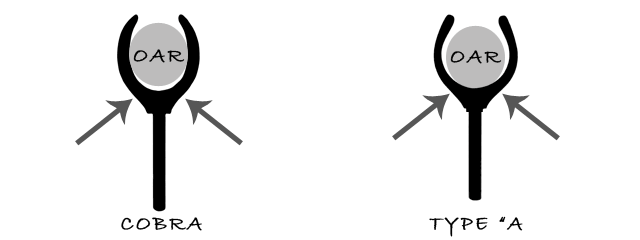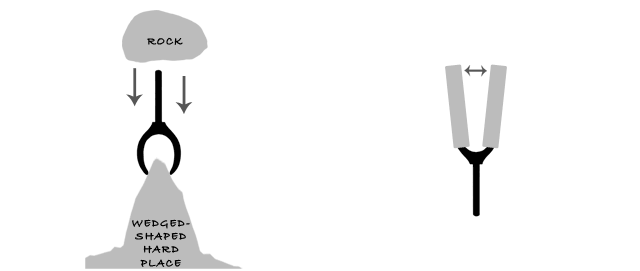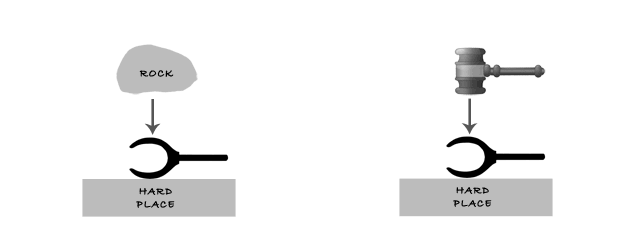All our COBRA and Type "A" Bronze Oar Locks are designed to be adjustable to fit your oars and rowing style. They are cast in a specially formulated "Mag 70" high-strength bronze alloy for a super heavy-duty oarlock that is resistant to distortion and corrosion. This makes these oarlocks a bit more difficult to tune, but the benefits are well worth the effort.
Notes on fit: An oarlock must have the ability to release the oar in catastrophic situations, yet minimize the chances of a premature release. To achieve this fine balance, most experienced oarsmen like to have 1/8" to 1/4" clearance on the rope wrap (or sleeve). On the COBRA Oar Lock, the oar is designed to rest about a quarter of the way up the opening, so the clearance measurement should be about mid-way up the opening (see the oar position in the figure below).

Personal preferences for fit abound. Some like a very loose fit, while others like their oarlocks just short of binding. You may want to play around a bit with your own fit. Here are a few tips on adjusting or tuning your bronze oarlocks.
Increase opening dimensions:
- In the Shop - Slip two metal pipes over the ends of each horn (or a vise and a metal pipe) and pry open a little at a time until the desired opening is achieved.
- On the River - Place the oarlock opening over a wedge-shaped rock or other hard place and strike the bottom of the shank with another rock. Careful not to bend or distort the shank (or slip and hit your hand, for that matter)!

Decrease Opening Dimensions:
- In the Shop - Place the oarlock, horn-side down, on a hard flat surface and strike with a mallet.
- On the River - Two rocks work great!

Smoothing the opening:
Our oarlocks are designed with a hammered finish that limits the oar's tendency to slip within the lock and allows for more advanced rowing techniques with less fatigue. If you find that you would rather have a smoother surface, rubbing with emery paper and/or rubbing compound will do the trick... with a little elbow grease, of course!
 Fly Fishing Film Tour is back!
Fly Fishing Film Tour is back!
